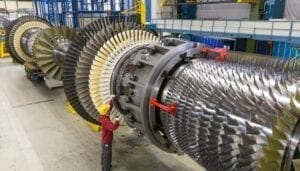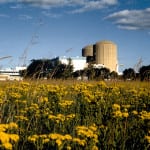In a voice vote on January 12, the Wisconsin Assembly passed AB 384, a bill that would repeal the statute currently preventing the state Public Service Commission (PSC) from authorizing construction of nuclear power plants in Wisconsin.
Specifically, Wisconsin law states that construction of new facilities cannot commence until the PSC issues a “certificate of public convenience and necessity.” However, the PSC is forbidden from certifying any nuclear power plant until a federally licensed facility, or a facility outside of the U.S.—which the commission determines will satisfy the public welfare requirements of the state—is available to dispose of high-level nuclear waste. Because there is no such facility, the PSC’s hands have been tied since the moratorium was enacted in 1982.
The bill received bipartisan support from the Committee on Energy and Utilities in December, passing on a 13–0 vote. It also has the support of unions and power companies in the state, including Alliant Energy, Dairyland Power Cooperative, NextEra Energy Resources, Xcel Energy, and WEC Energy Group. It will now head to the Wisconsin Senate for consideration. According to Wisconsin Public Radio, Republican Gov. Scott Walker will sign the bill, if it makes it to his desk.
“Today is a good day for Wisconsin. We need to work on keeping energy affordable, safe and environmentally friendly, and bringing nuclear energy back to Wisconsin will do just that,” said Rep. John Macco (R-Ledgeview), one of the legislators who introduced the bill. “With this bill, Wisconsin will be a nationwide leader in nuclear energy.”
The bill would also reprioritize choices for meeting the state’s energy demands. Currently, to the extent cost effective and technically feasible, the PSC must consider options in the following order:
- Energy conservation and efficiency
- Noncombustible renewable energy resources
- Combustible renewable energy resources
- Nonrenewable energy resources
If the bill becomes law, a new option—advanced nuclear energy (using a reactor design or amended reactor design approved by the Nuclear Regulatory Commission after December 31, 2010)—would be considered before nonrenewable energy resources. That means nuclear power would leapfrog over both coal and natural gas in the state’s energy pecking order.
It is unlikely that any power generator will propose a new nuclear plant in Wisconsin in the near-term. The fact is, one of Wisconsin’s previous nuclear plants—the Kewaunee nuclear station—was retired in 2013 for economic reasons, even though it was licensed to operate until 2033. However, changing the law would remove one large hurdle for future nuclear plant developers, if or when they come.
—Aaron Larson, associate editor (@AaronL_Power, @POWERmagazine)










